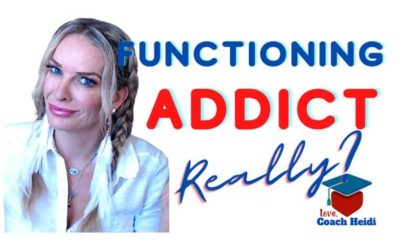Simply put, gaslighting is when someone manipulates you into questioning what you believe, think, or know.
The problem is- it’s sneaky. It can be hard to tell when it’s happening. Even the smartest people fall prey to the manipulation.
Let’s talk about some of the ways one may gaslight you. What are the red flags?
- They use blame. For example, if they are called out on their behavior for saying something extremely hurtful, they may say something like, “Well, I only behaved that way because you put me in that situation. I would have never sad that of you hadn’t backed me into a corner.”
In this situation, you start to wonder if that’s true. Did they only behave that way because you provoked them? The short answer is NO. People are provoked all day long and don’t become verbally abusive. This is likely a dysfunctional or toxic person.
- They use denial. This happens a lot with the people I work with who are dealing with addiction in their family. Maybe you find a beer can in the trash. They may say something like, “There was no beer can.” Now, this sounds ridiculous because you might even be holding the can in your hand and they still blatantly lie. Or they may say, “Well, that’s not mine! That must be yours.”
You know darn well, it’s their beer can. But you start to wonder who else may have put it there because they can be so convincing.
- They use guilt and projection. Let’s say you catch them in some form of cheating. They may say, “Wow! I can’t believe you think that about me! I was only that woman’s house because she is an old friend who needed some work done. Her husband was there too. I can’t believe you’re accusing me of something like this. We talked about you the whole time! Are you sure you’re not the one who’s cheating? You wouldn’t be thinking thoughts like this about me unless you were doing it yourself. If you keep telling me I’m cheating, you’re going to make me cheat. I might as well do the crime if I’m already doing the time.”
Suddenly, you find yourself sucked into the craziness and start to defend yourself. You have been completely derailed.
Or if it’s an addict or alcoholic and you confront them for relapsing, they may say something like. “If you keep accusing me of using, you’re going to make me use. If I do relapse, it will be your fault.”
Now, of course that’s just not true. If you want to know more about this, head over to and explore our most commonly asked questions.
- They use flattery. They are acting totally out of line, and everyone else is pointing out their bad behavior, they will say, “Thank God you see me clearly. Other people don’t get me. Only you understand the real me. They only see the bad. Thank God you see the good in me. I’d be nowhere without you. You’re the only one who believes in the good in me. You’re the only one who loves me.”
- They’ll enroll others to convince you you’re crazy. They will use triangulation, going to those you love and attempting to pit you against each other. They may make things up about you.
What’s the next step if you see yourself here? It’s to reach out and get some clarity and have a discussion with a qualified therapist or coach. I am happy to help you if you’re ready to start getting some wise, sound council.
You may need someone who has an objective viewpoint.
I now you love this person. Part of you wants to believe the lies. You want the relationship to work. You may be avoiding breaking up or confrontation. But you’re not avoiding pain by continuing to lose your ability to see clearly.
I want to encourage to take the next steps and reach out to explore codependency coaching.





0 Comments